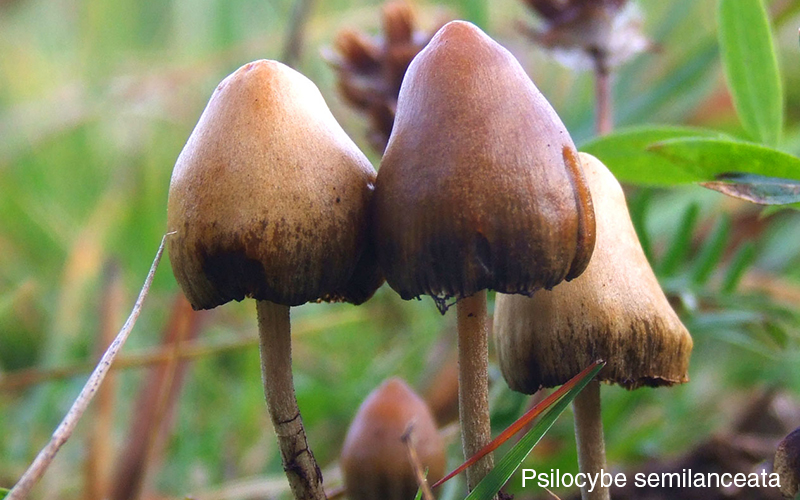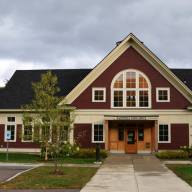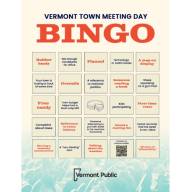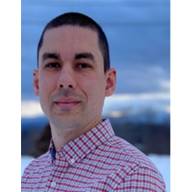“We have a troubled and confused relationship with drugs in our country,” said Chittenden County representative Martine Gulick. “The war on drugs taught us to criminalize and fear drugs rather than see them as part of a larger public health landscape.”
Gulick spoke in a press conference on Thursday, May 4, 2023, shortly before the House Judiciary Committee heard testimony for a bill that would decriminalize the possession of psilocybin mushrooms and create guidelines for its use in therapeutic settings – likely next year.
Psilocybin, a psychedelic compound found in several species of mushrooms, was placed in Schedule 1 of the Controlled Substances Act in 1970. It was classified as lacking therapeutic value and having a high potential for abuse.
The House will take up this bill next fall. If it passes, Vermont would be the fourth U.S. state or territory/district to decriminalize its possession – after Oregon, Colorado, and the District of Colombia. Several municipalities, like in Michigan and Texas, also have some version of decriminalization. Vermont residents would be allowed to grow, use, share and sell psilocybin-containing mushrooms.
A THERAPEUTIC ALTERNATIVE
At Thursday’s hearing, legislators, advocates, and experts refuted the federal classification of psilocybin, arguing that the compound can have far-reaching therapeutic effects.
Caledonia Representative Joseph ‘Chip’ Troiano, a sponsor on the House bill, told the judiciary committee that he struggled with depression and post-traumatic stress disorder after serving as an infantry solider in the Vietnam War. He said that psilocybin was an important feature in a course of healing that involved three decades of psychotherapy, experimentation with cannabis and other experiences.
Troiano said that he became interested in drafting a bill to decriminalize psilocybin when he saw that the U.S. Department of Veterans Affairs supported psilocybin-assisted treatment for veterans. “When the VA takes this up – a remedy that doesn’t come in a pill bottle – I take notice,” he said.
Many spoke to the need for therapeutic ‘alternatives’ in the context of the addiction crisis, a widespread mental health epidemic, rising rates of suicide, and a health care model fraught with systemic issues. Senator Tanya Vyhovsky said, “We need to look at every new idea to solve these crises facing us, because the ways we have been going are not working.”
Vyhovsky, also a mental health clinician, pointed to “Western medicine’s overreliance and blanket trust in laboratory-created pharmaceuticals.” Although many at the hearing acknowledged that medications can be necessary – especially for addiction and mental health conditions, there was a strong rhetoric around their pitfalls.
Rick Barnett, a clinical psychologist and addiction specialist in Stowe, spoke to medication side effects and the way that anti-depressant drugs can decrease the brain’s ability to produce serotonin over time. He said that psilocybin works on the brain’s serotonin system, although differently than medications do – and through infrequent use.
Rory Van Tuinen, who grew up in Waterbury, said that psilocybin helped him to stop using illicit opiates and methadone – a synthetic opiate used to treat opiate addiction since the early 1970s. “I know that for some, methadone saves lives. But for me, it perpetuated my drug use,” he told the judiciary committee. He said that his experiences with psilocybin and other psychedelics were more meaningful and allowed him to see his potential.
THE HOME AND THE CLINIC
Beyond decriminalizing psilocybin, the bill would spearhead efforts that, in theory, would expand access to psilocybin in clinical and therapeutic settings. It would establish an eight-member working group comprised of state officials, researchers and advocates in order to begin examining a path toward medicalization.
The group would be tasked with reviewing studies on the therapeutic and medical uses of psilocybin, researching how other states like Oregon and Colorado are guiding and regulating how clinicians and therapists administer psilocybin, and discussing how to create equitable access to Psychedelic Assisted Therapy.
Still, some legislators and others who testified in the hearing agreed that what Vermont resident Katherine MacLean called the “home experience” was more promising.
MacLean, who also researched therapeutic applications of psilocybin at the Johns Hopkins University School of Medicine from 2009 to 2013, wrote in a letter to the Judiciary Committee that medical models for administering psilocybin, while effective, will be inaccessible for many. “The American health care system is struggling to meet even the basic needs of most Americans,” she wrote. “Psychedelic medicine will be no different; it will be expensive, hard to access, and likely not covered by most peoples’ insurance.”
“I strongly believe that [emotionally supportive] skills are teachable and that we can educate and empower Vermont residents to take care of themselves and others through these experiences,” she wrote. “As with birth midwives and death doulas, chaplains and home nursing care, and even traveling nutrition experts, I believe it is possible to create the structures of professional and volunteer support to enable many Vermonters to safely have psilocybin mushroom experiences in their own homes.”
COMMERCIAL (DIS)INTERESTS
While the bill would allow Vermonters to grow, share and sell psilocybin mushrooms amongst themselves, the hearing opened up some talk of commercialization. Barnett, a clinician, said that drug companies could likely become more involved with the production of synthetic psilocybin, which he speculates becoming more widely available by 2027.
Shawn Straffin, a Lyndon resident and leader with the advocacy group Decriminalize Nature, pointed out in an interview that more local models could exist – whether through cultivating mushrooms or extracting psilocybin in order to more carefully control the potency, which can vary wildly among the fruiting bodies of mushroom species.
Commercialization, Straffin said, could create an even greater public acceptance of psilocybin.
But Troiano doesn’t think that scaling up production would be necessary, as psilocybin use is typically infrequent, he said. “I would expect that we wouldn’t see such a major commercialization for it. That’s my hope.”
Brannstrom lives in Waitsfield and is researching the opiate crisis in Vermont. She is a former staff writer for The Valley Reporter.













